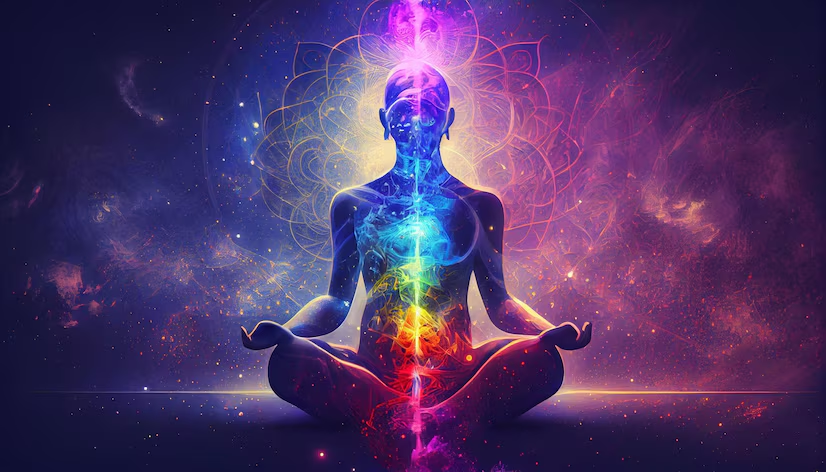
The Role of Ritual in Spiritual Practice
- Kim Stapleton

Rituals have been an integral part of human life and spiritual practice for centuries, shaping the way people connect with themselves, their communities, and the divine. While some may associate ritual with religious rites, rituals extend into personal and secular realms as well. In spiritual practice, rituals serve as a bridge between the physical and spiritual, providing structure, focus, and a sense of continuity.
What Is Ritual?
A ritual is a set of actions, often symbolic, performed in a specific sequence and frequently repeated. Rituals can be elaborate or simple, public or private, and may involve prayer, meditation, the lighting of candles, the use of sacred objects, or even quiet reflection. At its core, ritual is about intention and presence. Unlike routine habits, rituals carry personal or spiritual significance, inviting participants to step into a space of meaning and transformation.
How Rituals Enhance Spiritual Practice
- Creating Sacred Space and Time Rituals help designate sacred space and time, setting apart moments that allow for reflection, gratitude, or connection to a higher power. By marking a clear beginning and end, rituals create an environment where one can focus, free from daily distractions. For instance, lighting a candle before meditation signals a shift from everyday concerns to a space of peace and contemplation.
- Cultivating Awareness and Presence Rituals encourage mindfulness and awareness. Whether it’s a morning meditation, an evening prayer, or simply sitting in silence, ritualistic actions draw attention to the present moment. The intentional, repetitive nature of ritual fosters a rhythm that calms the mind and brings the practitioner into a heightened state of awareness. This allows for a deeper experience of the divine or of one’s inner self.
- Connecting to Tradition and Community Rituals often connect us to traditions and to a larger spiritual community. Participating in rituals handed down through generations creates a sense of belonging and continuity. They remind us that we are part of something greater than ourselves and offer a shared language for celebrating, grieving, or simply acknowledging life’s transitions. Rituals like communal prayers, chanting, or ceremonies bring people together, reinforcing unity and shared purpose.
- Supporting Personal Growth and Transformation Rituals mark important life events and transitions, allowing people to move gracefully through change. A graduation, a wedding, or even a daily affirmation ritual provides a moment to acknowledge growth, release old patterns, and embrace new beginnings. Spiritual rituals that focus on self-reflection or intention-setting can help clarify goals, letting the practitioner align actions with their deeper purpose.
- Channeling Energy and Intentions Rituals help us direct our energy and intentions with clarity and focus. They give physical form to our desires, whether through prayer, meditation, or symbolic actions like writing down goals or lighting incense. This focused energy reinforces our commitment to our spiritual or personal path, helping us manifest our intentions and aligning our actions with our values.
Examples of Rituals in Spiritual Practice
Rituals vary greatly across cultures and personal beliefs, but some common examples include:
- Meditation and Prayer: These bring a sense of inner peace and connect the practitioner with a higher consciousness or sense of purpose.
- Journaling: Writing intentions, gratitude lists, or reflections can become a ritual that deepens self-awareness and personal insight.
- Nature Rituals: Spending time outdoors, acknowledging natural cycles like the full moon, or practicing gratitude for the earth can connect us to the larger universe.
- Sacred Objects: Using objects like crystals, incense, or statues as focal points during rituals can symbolize aspects of spirituality and aid concentration.
Embracing Ritual in Everyday Life
Ritual doesn’t have to be grand or complex to be meaningful. Simple daily practices like lighting a candle before meditation, saying a gratitude prayer before eating, or taking a moment of silence in the morning can serve as spiritual rituals. The power of ritual lies not in its form but in its intention, focus, and presence.
In a world that often feels disconnected and rushed, rituals ground us, offering moments of pause, reverence, and connection. By incorporating ritual into spiritual practice, we bring greater purpose and depth to our lives, fostering a sense of unity with ourselves, our communities, and the world around us.
Related
Share
Welcome
Mind Body Soul Spirit's Holistic health & wellness energy healing blog aims to inspire you to question, discover and grow. It covers distant attunements, energy healing, spirituality, well-being and ways to increase vitality.
Most Recent Posts
Start any time
Immediate Downloads Available for Most Products Please Check Individual Listings for Details
Warm Welcoming Support
Happy to help x
10,000's of Happy Clients
Major payment methods
accepted




